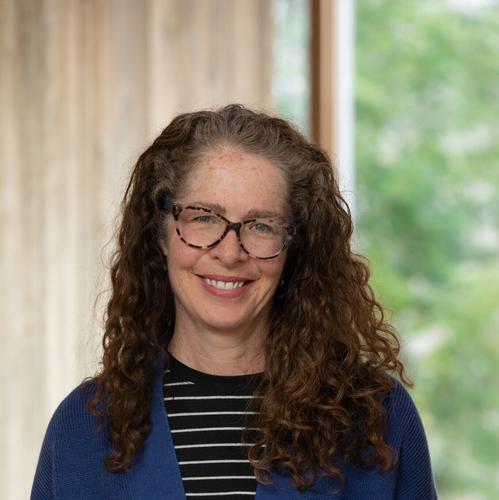
Mary Kate McGowan
Virginia Onderdonk ’29 Professor of Philosophy
Links
Professor of metaphysics, philosophy of language and law; also teaches logic and various seminars.
My dissertation ("Realism or Non-Realism: Undecidable in Theory, Decidable in Practice," Princeton, 1996) was in metaphysics. I have published articles on metaphysical realism (the thesis that there is a single objective way that the world is), the model-theoretic argument (an alleged refutation of metaphysical realism), and the grue paradox (a technical paradox in confirmation theory).
More recently, I have been thinking about the subtle ways that speech alters normative facts and how this might be implicated in the perpetuation of unjust social hierarchies. In particular, I am interested in the possibility that more speech than we realize (e.g., some pornography and racist hate speech) enact norms constitutive of harm. This possibility could even have free speech implications for these harmful categories of speech. I am also interested in what makes something count as speech in the technical sense of a free speech principle. An utterance such as "I hereby hire you to kill my husband" does not count but actions such as burning a flag do.
I teach courses in metaphysics and epistemology (M&E). This includes just about everything except the history of philosophy and value theory (ethics, aesthetics, and political philosophy). In a typical year, I will teach Logic, Introduction to M&E, Philosophy of Language, and an advanced seminar.
I have also invited students to write articles with me, and they did so just for the sheer fun of it. (Colleagues at other schools envy me for having such students!) One article is on indirect speech acts. Saying (while dining), "Can you pass the salt?" for example, is directly and literally a question but it functions indirectly as a request. Another other paper is on silencing, the idea that the speech of some can interfere with the speech of others in a way that violates the right to free speech. Both of these articles have been published in peer-reviewed philosophy journals. A third article that I co-authored with students here is currently under consideration.
I participate in the Workshop on Gender and Philosophy at MIT. This is a group of Boston-area scholars interested in work on gender and philosophy. My own foray into feminist scholarship is partially attributable to this group.
I have also co-edited (with Ishani Maitra) an interdisciplinary collection of essays on free speech. Speech and Harm: Controversies Over Free Speech (OUP, 2012) brings together philosophers, political scientists, legal scholars, and sociologists and it seeks to inform free speech issues by being as clear as possible about the various connections between speech and harm.
I am also a wife and mother of two. I love spending time with my wonderful family, traditional Irish music, playing the flute, running in the woods, walking the beach, eating chocolate, blowing bubbles, baking, laughing with old friends, and Innis Thiar.
Education
- B.A., Wellesley College
- M.A., Princeton University
- Ph.D., Princeton University